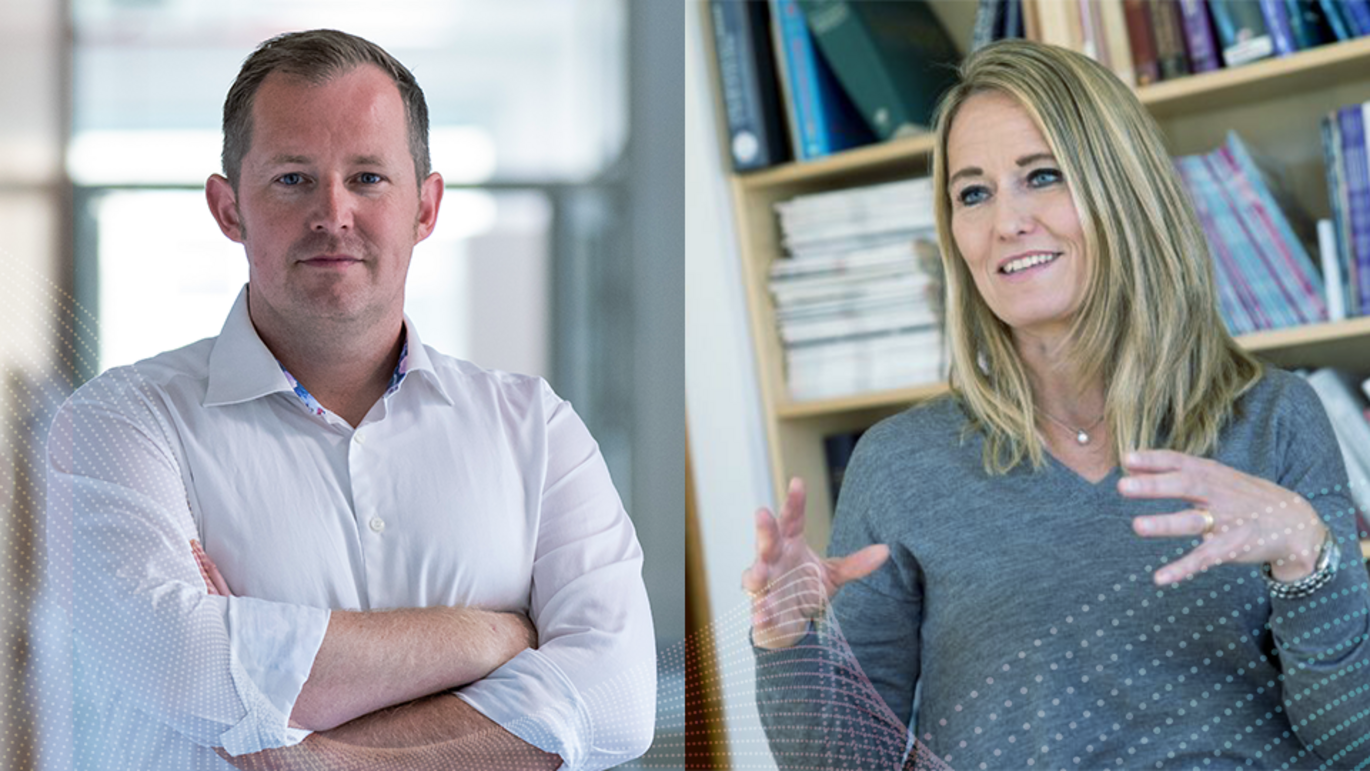New network for cancer research on the way at Health
Before long, Health’s five research networks will become six. A new network focusing on translational cancer research will unite the talents in one of the faculty’s absolute strong points.

About the network
- In the New Year, a founding meeting will be held for the network’s steering committee
- The network is expected to hold its first annual meeting in the summer of 2023
- Christian Lindholst, Head of the Department of Forensic Medicine, has been appointed the network’s faculty representative
- Health’s other five research networks are:
Increasing the number of research networks beyond the current five, was not on the cards for Health. However, a proposal from two researchers who work at separate ends of the spectrum of cancer research has caused the faculty management team to change their views on the matter.
The initiators of the new network are Signe Borgquist, Clinical Professor and Chair of the Department of Clinical Medicine, and Professor Martin Roelsgaard Jakobsen of the Department of Biomedicine. For several years, the two researchers have talked about the need to create a unified platform for the field.
“We have a lot of talented cancer researchers at Health who work within a variety of highly specialised areas, but what we lack is a natural meeting forum. We are very divided up, with much of the pre-clinical research taking place in the University Park, while clinical cancer research takes place in the hospitals, and even though there is cooperation across groups and departments, we believe that a network could significantly strengthen the collaboration,” says Signe Borgquist, who stresses that cancer research is not just a strength for Health, but also for AUH, which has recently named cancer as one of its five key development areas for the next five years.
Will emphasise the translational aspect
The new network is focusing on a disease area that is very much in the public eye, and according to Martin Roelsgaard Jakobsen, there is a good reason for this.
“Cancer has a huge prevalence in the population, and we all know people who have been affected by it. So it is important that we consistently focus on translating our findings from basic research into the clinical situation, and vice versa, as this is the way to create new and better treatments for patients. If we use our resources correctly, we will really be able to maximise our knowledge sharing and turn Aarhus into a beacon within the translational area of cancer research,” he explains.
The two initiators also hope that the network will help to create a new collaborative culture and more structure in the field, which presently is quite difficult to navigate.
“Neither at Health nor at the hospitals are we formally organised in the field of cancer research. Just the fact that this will give us greater insight into which projects are taking place in the various places will make it much easier to find relevant partners,” says Signe Borgquist.
A very special situation
The faculty management team had already decided not to launch any more formal research networks. Nonetheless, the request from the two professors has shaken this decision.
“The arguments for starting the network are really strong. The more we delved into it, the clearer it was that there is a real need here, and great potential,” says Dean Anne-Mette Hvas.
“We are at the cutting edge in a wide range of disciplines, from surgery to immunology, from transplantation to reconstruction, from radiation and particle therapy to liquid biopsies and circulating tumour DNA. We have some of Europe’s best brains and facilities, and the faculty management team must, of course, help these to organise and develop.”
The Dean stresses that the networks have been set up to support the development of some of the faculty’s positions of strength, but that there are still many other ways of collaborating outside the formal networks.
Contact
Network coordinator Anja P. Einholm
Aarhus University, Health - Dean’s Office
Mobile: +45 9350 8408
E-mail: ape@au.dk